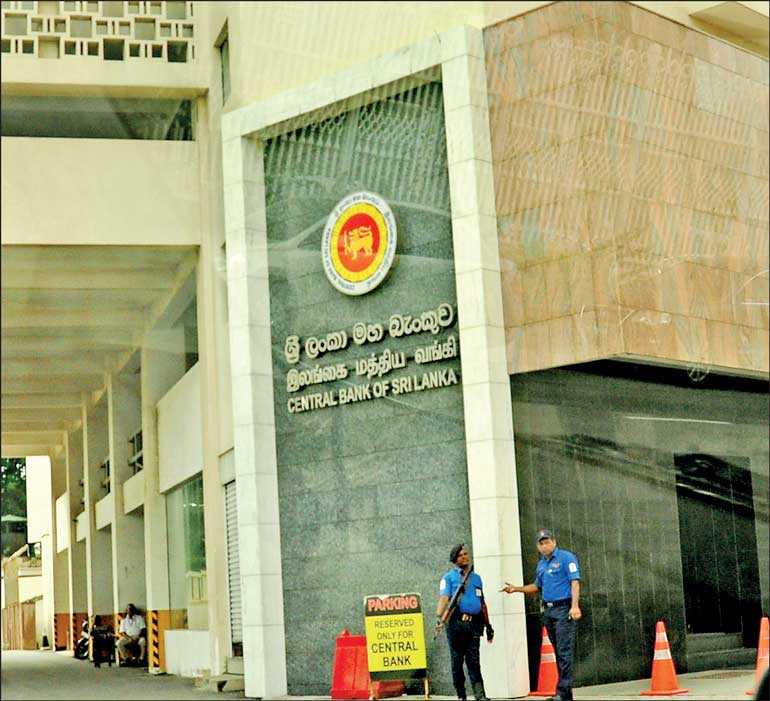Tuesday Feb 24, 2026
Tuesday Feb 24, 2026
Wednesday, 31 July 2019 00:00 - - {{hitsCtrl.values.hits}}

In response to the article titled ‘A reply to Central Bank’s response’ that appeared in Daily FT on 30 July, the Central Bank of Sri Lanka wishes to make the following further
clarifications, while thanking the author of the said article for contributing to the public dialogue on modernising the law governing central banking in Sri Lanka.
A central bank’s prime role in an economy is maintaining stability
The Central Bank wishes to reemphasise that the key role of a central bank is to maintain stability, in the general price level, real economy as well as the financial system. Such macroeconomic stability is an essential element to create and sustain a conducive environment for productive investment to take off and for human capital resources to thrive.
With the proposed amendments, the Central Bank will be empowered and publicly held accountable for creating such an environment, and it will continue to support the Government’s economic policies with a view to encouraging and promoting the development of the productive resources in Sri Lanka, without disrupting macroeconomic stability.
In relation to the author’s specific example of the lack of IT graduates in Sri Lanka, the Central Bank neither had a direct role in such endeavours under the current Monetary Law Act nor will it have a role under the proposed law.
As emphasised by the Central Bank at various fora, achieving high and sustainable economic growth will require the formulation and implementation of far reaching structural reforms that have been outlined in the Central Bank’s annual reports for years. Strengthening the institutional framework of the Central Bank is one such identified reform.
Excessive money creation and its effects
With regard to excessive money creation by central banks, global experience has illustrated that in almost all instances, such money creation has resulted in adverse, sometimes disastrous, outcomes. This is due to excessive money creation, irrespective of its intention, adding to aggregate demand, and thereby fuelling excessive inflationary pressures in an economy.
Inflation has a disproportionate adverse impact on the poor who do not own assets to hedge against it. Such monetary stimulus is also unlikely to result in sustained economic growth or employment generation, as money is known to have a neutral effect on real economic activity in the long run.
Differentiating OMOs and financing the Government
As a part of its open market operations (OMOs), the Central Bank has been engaged in secondary market transactions involving government securities under a well-established transparent auction system, particularly after the introduction of active OMOs in early 2000s, without any allegation of suspicious secondary market transactions under OMOs.
While maintaining OMOs as a key monetary policy tool, the proposed amendments seek to prohibit the Central Bank’s subscription to the primary issuances of Treasury bills and streamline provisional advances that can be obtained by the Government from the Central Bank.
These proposed amendments have to be analysed in the context of recent legal, regulatory and operational improvements, which have made the auction system for government securities more transparent, enabled the Government to engage in active liability management exercises, and allowed the Central Bank to provide long-term liquidity to the market through its OMOs when necessary.
In particular, the primary issuances of government securities since 2017 are based on a new more transparent and hybrid auction system, which has addressed the earlier concerns on the issuance of government securities under direct placements before 2015 and the 100% auction based system practiced during 2015 and 2016.
Anchoring inflation under flexible inflation targeting
In response to the author’s query as to why change the monetary policy regime if inflation has been maintained in single digits over the past 10 years, the Central Bank wishes to point out that a prime objective of the proposed amendments is to provide a credible framework to sustain this achievement.
In the absence of nominal anchors related to the exchange rate or money growth, it is the Central Bank’s credibility in the conduct of monetary policy in the past 10 years that continues to anchor inflation and inflation expectations at present. In this context, flexible inflation targeting provides a more acceptable institutional framework with greater credibility and accountability to anchor inflation and inflation expectations around an explicitly announced inflation target. In fact, the Central Bank has been following a de facto flexible inflation targeting regime for some time. The intention now is to institutionalise this in law.
FAQs on proposed amendments to the law governing central banking
In the near future, the Central Bank of Sri Lanka will publish a ‘Frequently Asked Questions (FAQs)’ column on its website about the proposed amendments to the law governing central banking in Sri Lanka, in order to educate the public on this nationally important endeavour.